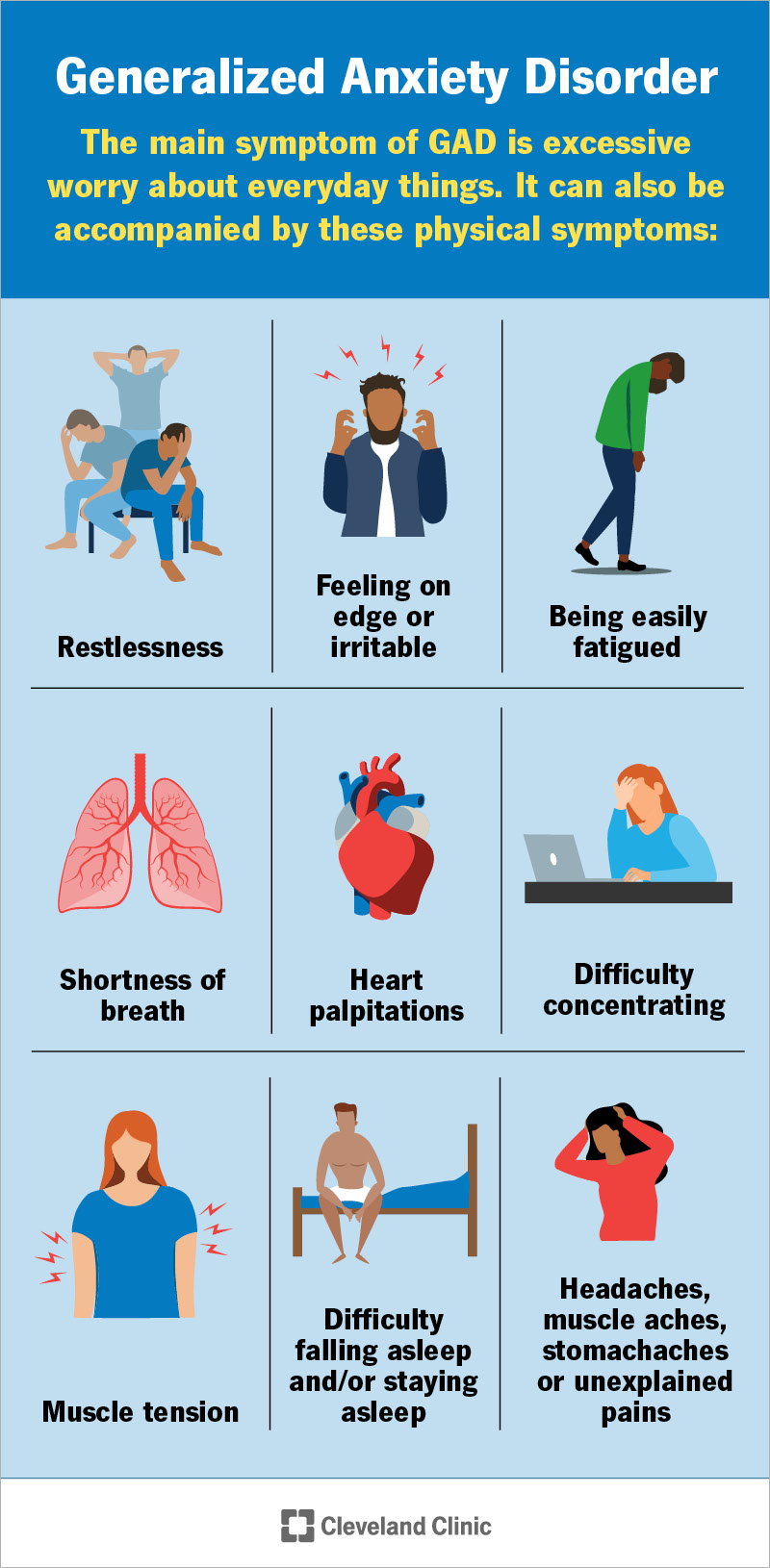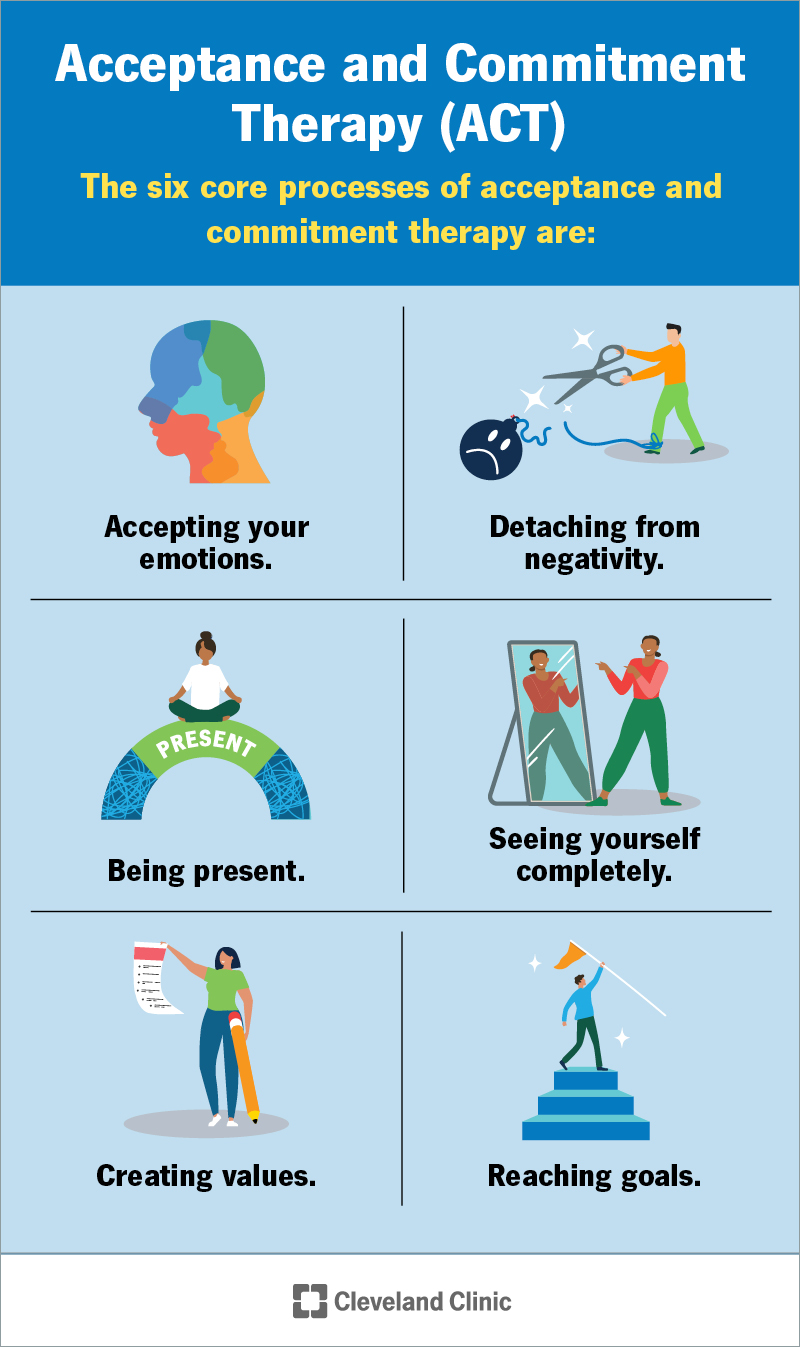Exploring Various Strategies in Coaching for Anxiety Condition for Enduring Modification
When tackling anxiousness disorders, it's necessary to explore a range of counseling methods. Each method offers unique understandings and tools to help you handle your signs effectively. You might discover that integrating techniques can yield the very best results. Understanding the subtleties of these approaches is crucial to promoting enduring change. Suppose the appropriate mix could release a new degree of emotional well-being for you?
Comprehending Anxiousness Problems: A Quick Overview
Anxiousness disorders, which affect millions of individuals worldwide, can significantly affect life. You may experience frustrating feelings of concern or stress that appear unmanageable. These feelings can cause physical signs and symptoms like a racing heart, sweating, or also lightheadedness. Common types of anxiousness problems consist of generalized anxiousness disorder, panic disorder, and social anxiousness condition. Each has one-of-a-kind signs, yet they all share a propensity to disrupt your routine and relationships.Understanding the origin triggers of your anxiousness is crucial. It may stem from genetics, brain chemistry, or life experiences. Identifying your triggers can assist you manage your actions better. It is necessary to keep in mind that you're not the only one in this battle. Numerous individuals deal with comparable difficulties, and looking for aid is a solid action towards sensation much better. By discovering stress and anxiety disorders, you're already on the path to understanding and handling your condition more effectively.
Cognitive-Behavioral Therapy: Challenging Adverse Thought Patterns

Determining Negative Idea Triggers
Identifying the details triggers behind your negative thoughts can be crucial in managing anxiousness when you encounter moments of distress. Begin by focusing on circumstances that prompt sensations of concern or worry. Is it a congested room, an approaching due date, or a conversation with particular people? Take down these instances in a journal. This will aid you determine patterns in your thinking. Also, notification physical sensations that accompany your negative thoughts, like a racing heart or tightness in your chest. By pinpointing these triggers, you get understanding right into what's sustaining your anxiety. Understanding these connections is the very first step in testing those thoughts and eventually reclaiming control over your emotional actions.

Changing Thoughts With Positives
Testing adverse idea patterns is a crucial step in changing your frame of mind and reducing stress and anxiety. You might frequently discover on your own entraped in cycles of self-doubt or catastrophic thinking. As opposed to allowing these thoughts determine your feelings, method changing them with favorable affirmations or reasonable options. When you think, "I can not handle this," change it to, "I can manage difficulties one action at a time." This straightforward modification can substantially affect your emotion. Consistently determining and responding to these unfavorable ideas aids develop a much healthier interior dialogue. Keep in mind, it takes time and effort, but continually exercising this technique can cause enduring modification, empowering you to deal with anxiousness with restored confidence and resilience
Building Coping Techniques Together
Replacing negative thoughts is just the start of handling stress and anxiety successfully. To develop long lasting adjustment, you need to construct coping techniques that equip you. Cognitive-Behavioral Therapy (CBT) assists you recognize and test those purposeless thought patterns. With each other, you and your counselor can discover exactly how these thoughts impact your feelings and behaviors.Start by developing functional techniques, like journaling or mindfulness workouts, that enable you to face anxiousness head-on. When you encounter your worries gradually, you'll learn to respond differently.

Mindfulness and Acceptance-Based Approaches: Growing Present-Moment Understanding
As you navigate the complexities of anxiousness, integrating mindfulness and acceptance-based approaches can considerably enhance your capability to cultivate present-moment recognition. By concentrating on the present moment, you'll find that you can observe your ideas and sensations without judgment. This technique helps you acknowledge your stress and anxiety without feeling bewildered by it.Engaging in mindfulness exercises, such as deep breathing, body scans, or directed meditations, enables you to ground yourself in your existing experience. Acceptance-based strategies motivate you to embrace your emotions as opposed to combat against them. When you accept your sensations, they shed their power over you.Incorporating these methods into your day-to-day routine can change exactly how you reply to anxiousness. You'll create strength and discover to browse demanding situations with higher simplicity. Inevitably, cultivating present-moment awareness lays the foundation for long-term adjustment, encouraging you to lead a more satisfying life.
Direct Exposure Treatment: Challenging Fears Progressively
Exposure therapy helps you confront your anxieties in a steady way, making it less overwhelming. You'll discover methods to encounter anxiety-provoking circumstances step by step, while also developing coping approaches to handle your responses. This method encourages you to take control and reduce anxiety with time.
Gradual Exposure Techniques
When facing stress and anxiety, gradually challenging your fears can be an effective means to regain control. This method, called progressive exposure, involves slowly revealing on your own to the circumstances or things that trigger your anxiousness. Begin with much less intimidating circumstances and gradually work your means as much as more tough ones. For circumstances, if you hesitate of public speaking, you could start by speaking in front of a mirror, after that progress to sharing ideas with a pal, and eventually address a little team. Each step helps desensitize you to the anxiety, developing your self-confidence in time. Bear in mind, it's important to pace on your own and celebrate tiny success as you move with this procedure, enhancing your capacity to handle anxiety effectively.
Structure Coping Strategies
Structure efficient coping methods is necessary for taking care of anxiousness, especially as you confront your concerns slowly. One powerful technique is exposure therapy, where you begin by facing your fears in a controlled fashion. Start with much less intimidating scenarios and gradually function your means approximately even more tough situations. This steady direct exposure helps desensitize you to stress and anxiety triggers, making them less overwhelming.Incorporate relaxation techniques, such as deep breathing or mindfulness, to soothe your mind during direct exposure. Track your progress, commemorating tiny success in the process to improve your self-confidence. Remember, it's okay to take your time; the objective isn't perfection however consistent renovation. By developing these methods, you'll encourage yourself to browse stress and anxiety and accept life much more completely.
Psychodynamic Therapy: Discovering Origin of Anxiety
Psychodynamic treatment checks out the unconscious mind, revealing the root triggers of your anxiety - Counseling services for anxiety. By examining your thoughts, feelings, and past experiences, this method helps you discover underlying conflicts and unresolved issues that may add to your existing anxiety. You'll function with a specialist to examine childhood years experiences, partnerships, and psychological patterns that form your responses today.As you obtain understanding right into these deeper layers of your subconscious, you'll begin to acknowledge just how previous occasions check here influence your present behavior. This understanding can bring about catharsis, allowing you to refine feelings you might have suppressed.Through the restorative relationship, you can additionally determine defense reaction that may have established in time, offering a clearer path to change. Inevitably, psychodynamic therapy equips you with the tools to resolve your anxiousness at its core, promoting long-term improvement in your psychological health
Holistic and integrative Methods: Combining Strategies for Greater Efficacy
Incorporating various restorative methods can enhance your trip towards handling anxiousness much more properly. By combining elements from cognitive-behavioral treatment, mindfulness methods, and alternative techniques, you can develop an individualized method that addresses your distinct requirements. As an example, you could use cognitive-behavioral methods to challenge unfavorable idea patterns while integrating mindfulness workouts to ground on your own in the here and now moment.Additionally, exploring alternative methods such as yoga or reflection can advertise leisure and decrease anxiety signs and symptoms. This blend allows you to develop greater self-awareness and resilience.Experimenting with these diverse approaches can help you find what reverberates most with you. Bear in mind, it has to do with finding a synergy that functions, instead of adhering to a single strategy. This integrative approach not just supplies prompt alleviation yet also fosters lasting skills for taking care of anxiousness, equipping you to recover control over your life.
The Role of Assistance Solutions: Building Durability Through Link
While it might appear that handling stress and anxiety is a singular journey, having a strong support system can play a crucial function in your strength. Bordering yourself with empathetic good friends, family, or assistance teams produces a risk-free area where you can openly share your feelings and experiences. When you get in touch with others, you remind yourself that you're not alone in this struggle.These connections supply inspiration and can supply useful coping approaches that have actually functioned for others. It's also an opportunity to acquire viewpoint; close friends can help you see situations in different ways, minimizing feelings of isolation.Moreover, psychological support promotes a sense of belonging, which can greatly reduce stress and anxiety signs. By leaning on your support group, you can construct resilience and deal with obstacles better. Remember, connecting for assistance signifies strength, and it can make all the difference in your journey toward managing anxiousness.
Regularly Asked Questions
What Are the Typical Signs of Anxiety Disorders?
You may experience restlessness, tiredness, trouble concentrating, impatience, muscle stress, and sleep disturbances. Physical signs can include rapid heart beat, sweating, and trembling. Recognizing these indicators early can help you look for ideal assistance and therapy.

How Much Time Does Treatment Commonly Last for Anxiousness Problems?
Therapy for anxiousness disorders usually lasts anywhere from a couple of weeks to a number of months. It really relies on your individual requirements, development, and the methods your therapist uses to assist you handle your stress and anxiety effectively.
Can Medicine Be Made Use Of Along With Therapy for Anxiety?
Yes, drug can definitely be made use of along with treatment for stress and anxiety. Combining both strategies commonly improves treatment effectiveness, assisting you handle symptoms while exploring underlying concerns through counseling. Constantly consult your doctor for individualized recommendations.
Are There Self-Help Strategies for Taking Care Of Anxiety?
Yes, there are several self-help methods for handling anxiety. You can practice mindfulness, involve in normal workout, maintain a well balanced diet regimen, develop a regular, and use deep breathing strategies to aid minimize anxiety signs and symptoms successfully.
How Do I Know if I Required Specialist Help for Anxiousness?
You ought to consider looking for expert help for stress and anxiety if it interrupts day-to-day live, causes substantial distress, or if self-help approaches aren't functioning. Trust fund your instincts; reaching out can bring about better coping skills and support. Usual kinds of stress and anxiety conditions include generalised anxiety problem, panic problem, and social anxiety disorder. When you run into minutes of distress, identifying the details triggers behind your adverse thoughts can be necessary in handling stress and anxiety. Changing unfavorable ideas is only the beginning of handling anxiety properly. By analyzing your ideas, feelings, and previous experiences, this method aids you discover underlying disputes and unsettled issues that may contribute to your present anxiousness. It's also an opportunity to acquire perspective; friends can help you see situations in different ways, reducing sensations of isolation (Counseling services for anxiety).Moreover, psychological assistance promotes a sense of belonging, which can greatly alleviate anxiety symptoms